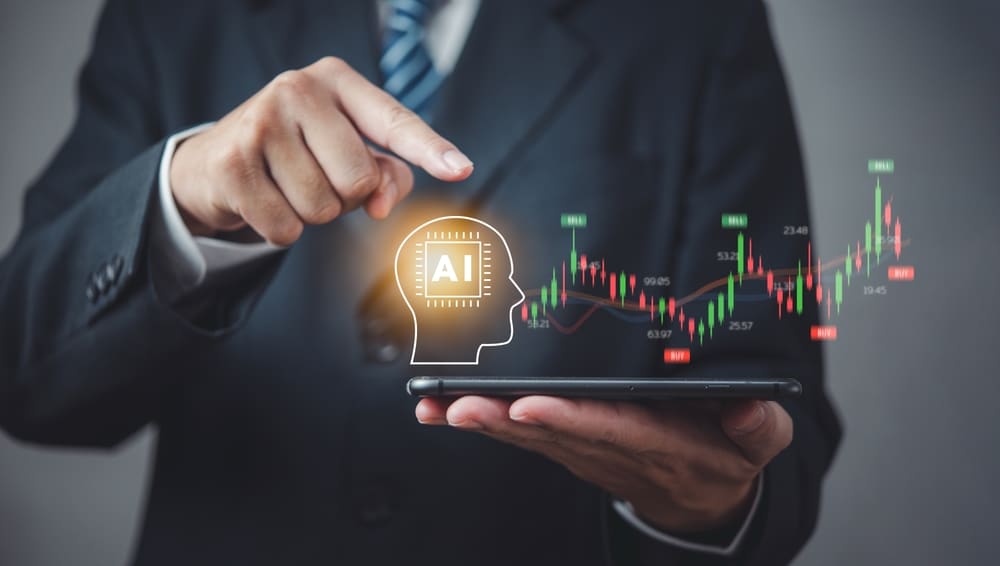The co-founder of Ethereum, Vitalik Buterin, has suggested that the Ethereum network’s code flaws may be resolved by using Artificial Intelligence (AI) technology. This innovative strategy seeks to improve the stability and security of the Ethereum blockchain by utilizing AI algorithms.
A Senate Committee in Virginia has suggested $39,240 as annual support to two recently formed cryptocurrency and AI commissions. The proposal was made on February 18 by Virginia’s Senate Finance and Appropriations Committe’s Sub-committee. The proposal came with an allocation of more than $23.6 million, which was appropriated for different departments to be used in 2025 and 2026.
The report has it that a large chunk of the funding is channelled to the Blockchain and Cryptocurrency Commission, which was established in January 2024, and the Artificial Intelligence Commission, with $22,048 and $17,192 set aside for general funding. Blockchain and Cryptocurrency Commission is made up of 15 non-legislative and legislative members specifically appointed for such tasks.
Vitalik Buterin Says Current Events Complies with Ethereum’s Mission
The Ethereum boss has voiced hope for the incorporation of AI into Ethereum’s development process. He sees a major role for AI-powered tools and algorithms in improving the security, dependability, and effectiveness of the Ethereum network.
With this development, developers can improve the overall security posture of Ethereum-based smart contracts and decentralized applications (dApps) by leveraging AI to expedite the process of locating and fixing possible code defects.
This proactive strategy fits nicely with Ethereum’s mission to promote innovation and the uptake of decentralized technology. For AI models to become more accurate and efficient in detecting vulnerabilities, a large amount of training data and ongoing improvement are needed.
Buterin Says it’s the Right Time Discuss the AI Solution
The Ethereum community is still looking for creative ways to improve the network’s security and resilience in light of these developments. Cryptocurrency industry expert Danielle du Toit from Coinpapa wrote that blockchain engineers, security professionals, and AI researchers must work together to fully utilize AI’s promise to fix vulnerabilities and protect the Ethereum ecosystem from new threats.
The Ethereum boss said that this is the right time to discuss the AI solution, especially now that Ethereum is approaching the official introduction of its much anticipated Dencun upgrade, expected to be launched on March 13th. According to the company’s description, the Dencun upgrade is designed to augment the functionality of the network.
Despite the growing hype in Buterin’s statement, the Ethereum community has detected some issues that have brought the reliability of the new system to question – they believe it may be affecting the way the AI would be detecting the vulnerabilities of the Ethereum code.
Result for OpenZeppelin Experiment Revealed, Vulnerabilities Detected
Recently, OpenZeppelin, a top security auditing company, worked with OpenAI’s state-of-the-art GPT-4 language model to undertake trials. The study aimed to evaluate AI’s ability to detect vulnerabilities in smart contracts, which are crucial elements of the Ethereum network.
The results of these tests provide insight into how AI might be used to address the widespread problem of code defects. The studies’ findings showed that OpenAI’s GPT-4 had the potential skills to find vulnerabilities in smart contracts. The experiment with the OpenAI’s GPT-4, by OpenZeppelin, have come out with a mixed result, with the AI reporting potential vulnerabilities in 20 out of the 28 issues. It also went ahead to invent non-existent difficulties.
Buterin cited the Goerli testnet incident, which happened on January 17. It was said that a bug was found in Prsym, which delayed the network’s final process, thus proving the relevance of AI-powered auditing, which is a plus to the general Ethereum network.
Kang Li, an AI security expert from CertiK, has expressed his concern that most AI tools, including the ChatGPT, maybe end up creating more security problems than they can solve. He also acknowledged the usefulness of AI in reverse engineering activities and code analysis.









Leave a comment